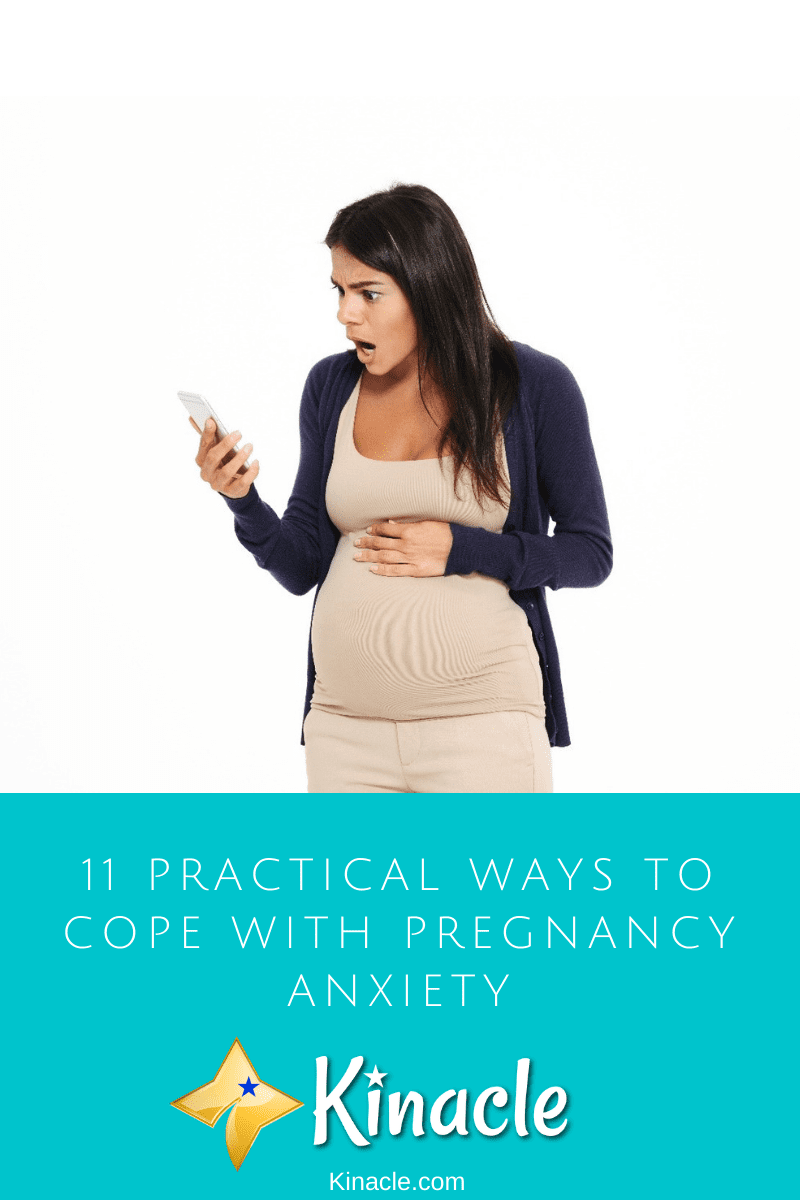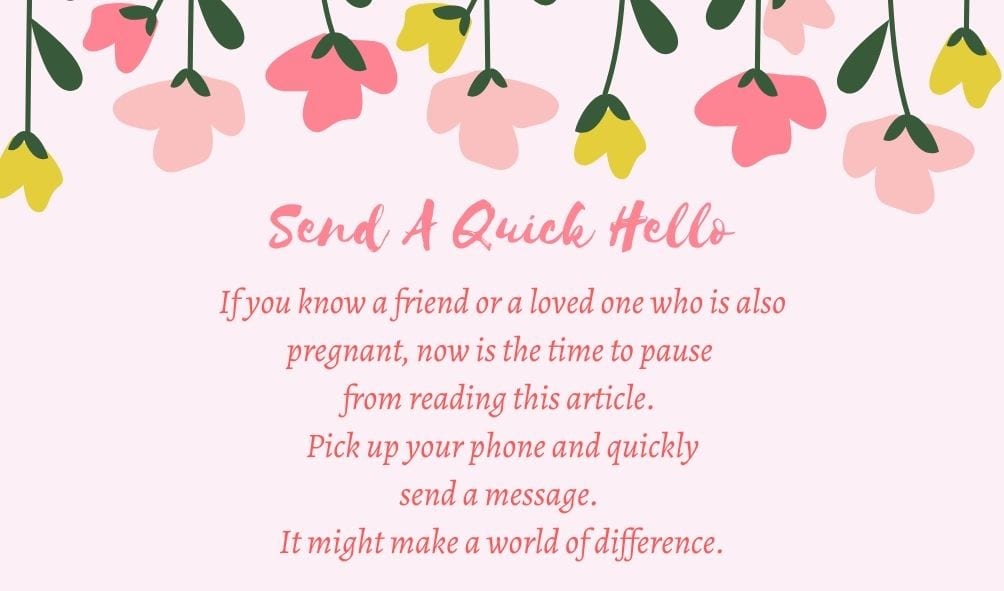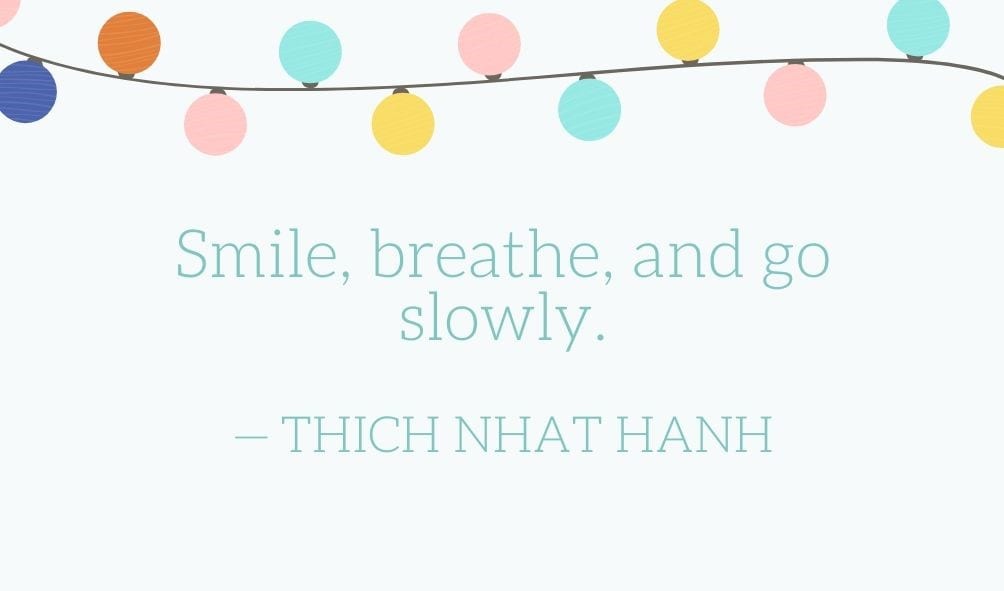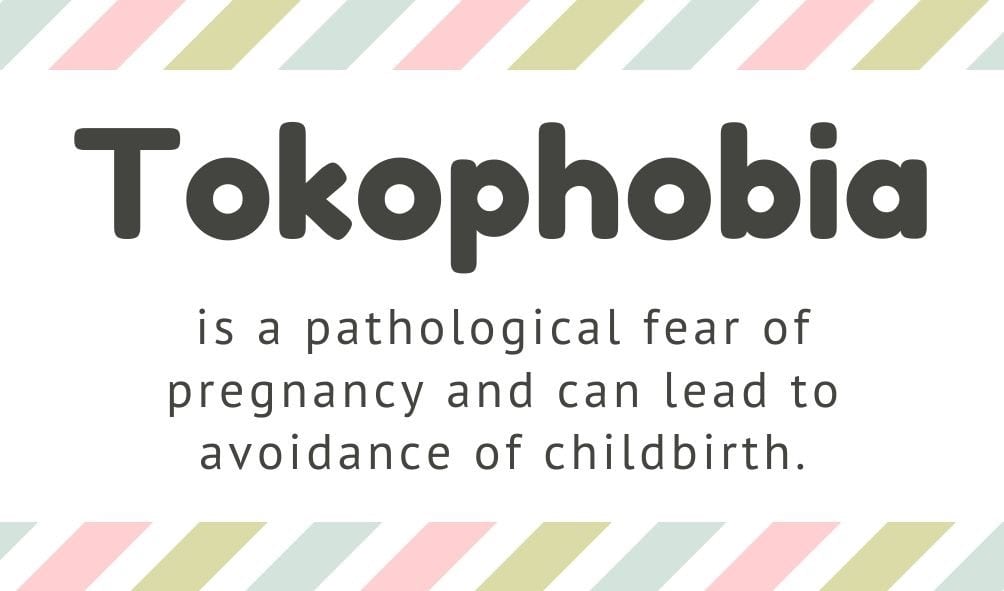
Pregnant women face a lot of pressures – most of which can cause stress and anxiety. And, on top of the usual pregnancy-related worries, being pregnant amidst a global pandemic can be downright scary. We’ve prepared some practical tips to help you or a pregnant loved one cope.
Pregnancy hormones can naturally cause women’s emotions to jump from ecstatically happy to miserably sad. But it isn’t just the hormones. Lots of factors can cause pregnant women to worry – sometimes those worries become so excessive that it can cause mild to severe anxiety.
Here’s a checklist of common reasons of anxiety in pregnant women:
- The baby might have congenital birth defects
- Something wrong might happen while giving birth
- Pain of giving birth
- Being a “bad mother”
- Getting sick or not immediately recovering after birth
- Financial worries as some pregnant women are unemployed, unmarried or single moms or simply part of a low-income household
- Apprehension of the “unknown” e.g. a pregnant woman may say “I know how advanced the world is medically but what if the same thing happens to my baby like that story about that baby in the mountains of Nepal?”
- Not returning back to normal weight/physical appearance
- Eating or drinking something that’s not good for the baby
- Allergies and infections that may harm the baby
- Doing something strenuous that may cause a possible miscarriage
- Fear of miscarriages, in general, especially if there are previous miscarriages
- Not being able to breastfeed or not being able to provide enough milk for the baby
- Not being able to give or spend time with older children/spouse
- Losing a job because of the demands of motherhood
- Water breaking while out in public or watching a movie/show in the theatre
- Not being able to exercise
- Not being able to satisfy sexual needs of spouse/partner during pregnancy and after giving birth
- Premature birth and still birth
- Giving birth to an underweight or overweight baby
- Giving birth via C-section or fear of needles, in general
- Worrying about postpartum depression or postpartum challenges, in general
Some fears and worries might seem a bit silly, too! For example, some women fear giving birth to an “ugly baby” or fear not being able to eat what they want. Regardless, though, whether serious or silly, we should never downplay a pregnant woman’s fears as these can all lead to anxiety that may be difficult to navigate or deal with.
Amidst this global health crisis that we are all collectively going through – imagine what pregnant women are dealing with? On top of the laundry list of worries above, they now have more to fear. Let’s pause for a minute:

Now, back to the topic.
Pregnant women right now are facing more fears than ever before, the San Diego Union-Tribune reports.

According to the article, one of the greatest fears among pregnant women today is contracting the COVID-19 disease and passing it on to their baby. Wen, a pregnant woman featured in the article, fears being separated from her newborn for days or weeks and maybe only seeing her baby through a glass window.
Wen isn’t alone.
Further in the same article, the University of California – San Francisco has “started the first U.S. registry of COVID-19 infected or exposed pregnant women. At least 60 women have enrolled so far.” The purpose of this registry is to keep track of any infected pregnant women so that their respective doctors and hospitals (should they plan to have a planned hospital birth) can act accordingly.
Apart from possible Corona Virus infection, we asked some women in our staff who are either expecting, just gave birth or know anyone who is pregnant to tell us some of their individual worries that cause them to become fearful and anxious:
- Afraid of giving birth alone – with no husband or partner present during birth
- Not being able to eat healthy food or, at the very least, satisfy some of pregnancy cravings due to food shortage and limited time to go grocery shopping
- Fear for family members that might contract COVID-19
- Worrying about doctors or nurses that may have COVID-19
- Worrying that only seeing doctors via FaceTime, Zoom or Skype may not be “enough” for pre-natal check-ups
- Worrying about having to possibly change existing birthing plans
- Worrying about not having enough places available to buy formula, diaper or baby clothes
- Worrying about newborn getting sick (or other older children) and not being able to safely visit the hospital
With all of the above to worry about, it’s no wonder that anxiety in pregnancy is quite common. A recent study showed that “anxiety during pregnancy is estimated to affect between 15 and 23% of women and is associated with increased risk for a range of negative maternal and child outcomes”.
However, some pregnant women may be more prone to anxiety than others if they have the following factors:
- Family history of anxiety or other mental health disorders such as depression
- Previous bouts of depression or anxiety
- High-stress environment at home or at work
- Previous miscarriage or problems with fertility
- Complicated pregnancy (current or previous)
- Pregnancy requiring complete bed rest
- Delivery of a premature baby
It’s also important to know that anxiety can happen to anyone, pregnant or not! It’s all part of being human. There are lots of things that are happening around us that cause us to worry, overthink or sometimes, feel overwhelmed. So here’s a reminder:

That said, it’s important to note that anxiety is the most common mental health problem. According to by the Anxiety and Depression and Association of America or the ADAA, “anxiety disorders are the most common mental illness in the U.S., affecting 40 million adults in the United States age 18 and older, or 18.1% of the population every year”. The ADAA further reports that anxiety is highly treatable, but when left untreated, can develop further into more complex mental or psychological disorders.
Another thing that’s important to remember is that anxiety is normal!
It isn’t always a mental disorder and, over time, it does go away. People feel anxious all the time, for some reason or another. And, more often than not, these anxious feelings pass.
Pregnant women are more prone to anxiety because, as mentioned, hormones can cause women to get on that emotional roller coaster especially during the first trimester. Pregnant women also worry about not just themselves, but also for the wellbeing of their child – logically, this can add more reasons for stress, and therefore – anxiety.
Also, recent statistics show that 30% of women will experience an anxiety disorder at one stage of their life or another, while only an estimated 19% of men will experience anxiety at some time of their life. So, when a husband says to his wife, “You worry too much!”, that observation is actually backed by science.
However, there are two types of anxiety in pregnancy that women and their spouses or loved ones should be aware of.
The Two Types Of Anxiety In Pregnancy
1. Generalized Anxiety Disorder (GAD)
Per the ADAA, “is characterized by persistent and excessive worry about a number of different things. People with GAD may anticipate disaster and may be overly concerned about money, health, family, work, or other issues. Individuals with GAD find it difficult to control their worry.”
GAD affects about 6.8 million adults in America. There seems to be no known definite cause, however, there is evidence that shows biological factors, family history, and stressful life experiences that can cause GAD. Experts also advice that GAD doesn’t happen suddenly but develops gradually from childhood to middle age.
In pregnant women, type of anxiety disorder is specifically referred to as Perinatal Generalized Anxiety Disorder or PGAD. According to this study, PGAD has “a high prevalence of 8.5%–10.5% during pregnancy and 4.4%–10.8% postpartum”.
If you’re pregnant or just given birth and you find it difficult to control your anxiety over seemingly mundane reasons for longer than six months and has symptoms listed here, then it might be time to see a doctor and get some treatment.
2. Antenatal Anxiety
This type of anxiety is simply defined as pregnancy anxiety. Per the results from this recent study published on April 2019, “Out of 380 pregnant women [who participated in the study], 195 (55.7%) were found to have pregnancy-related anxiety. Lower socioeconomic status, low social support and depression emerged as significant determinants of anxiety.”
Antenatal anxiety can become a serious disorder that may include symptoms such as panic attacks, feeling irritable to the point of rage, feeling constantly “on edge”, and consistently worrying that something horrific might be happen to you or your child. Other physical symptoms of antenatal anxiety are chest tightness and tense, painful muscles.
Women who undergo antenatal anxiety may be difficult to diagnose because several symptoms and manifestations are usually thought of as “hormonal changes” or some people may just say “it will go away once you give birth”. But, it’s a serious condition that should be treated to avoid further postnatal mental problems.
Findings also show that prolonged antenatal anxiety may possibly crossover to the growing fetus and cause congenital health issues.
Should you be feeling unusually anxious even long after your first trimester, you know yourself and your body better than anyone else ever can; if you feel that you’re simply “not the same” and feeling anxious more and more each day that you can’t eat properly, can’t sleep well and generally not functioning well, it’s best to contact your doctor for an evaluation and proper treatment.
A bit of pregnancy-anxiety trivia before we continue:

If you want to learn more about Tokophobia, you can start with here. If you feel that you may have Tokophobia or even have worrying feelings of trepidation and fear of getting pregnant, contact your doctor right away.
For the most part, however, anxiety in pregnancy is a normal occurrence, definitely manageable and with small changes to your lifestyle and exerting efforts to dispel any anxious fears, it doesn’t have to be part of your pregnancy.
What do we suggest?
Here are 10 Easy, Practical tips to Cope with Pregnancy Anxiety (especially in light of the COVID-19 Pandemic):
How To Deal With Pregnancy Anxiety – 11 Top Tips

1. Limit Social Media
Social media can be a great way to feel connect with friends and loved ones, especially during lonely, isolating times of being self-quarantined at home. It’s also one of our best sources of information and updates for us to see what’s going on the world and what other people are up to, as well.
However, social media can also cause undue stress and anxiety. Especially in today’s global health pandemic, social media is abounding with lots of fake, unverified news but also, on-the-ground news coverage of doctors and nurses, real-life stories of actual patients and survivors of COVID-19 which may trigger negative feelings and cause pregnant women to feel unusually fearful, stressed and anxious.
Our suggestion is to limit social media through the following steps:
- Allotting only a couple of hours a day for social media in the morning and another couple of hours in the evening.
- Following only one or two legitimate news sources and unfollowing the rest.
- Replacing news pages or accounts by following groups that promote positivity, good vibes, good news, etc.
- Watching comedies, sitcoms or feel-good romantic movies or TV shows
- Replace “vacant” hours with other activities like napping, gardening, cooking, etc.
2. Limit Exposure To News
Just like social media, the news nowadays can cause tremendous anxiety especially amongst pregnant women.
While we can’t really choose what shows up in the news on the TV, we can shut it off or change the channel and watch something else.
We suggest scheduling a time in the week to watch the news, perhaps only two evenings for the week. This will make sure that you will be updated and informed but limiting your exposure to news, as well.
The rest of the evenings can be spent as family quiz night, family movie night, family game night, or simply a quiet evening with your spouse.
You can also spend some evenings doing light exercises like yoga or maybe schedule an online class that can help prepare you for labor, such as a class for breathing exercises that you and your spouse can both join in.
However, if doing anything that relates to pregnancy may cause you to become more anxious, then you can do other engrossing activities that allow you to focus and helps you feel like you’re “in the moment”.
3. Talk To A Friend
In the days before the whole world experienced COVID-19 (that seems like such a long time ago now), talking to a friend meant scheduling time to catch up or maybe visiting your best friend’s home for a quick chat. Maybe sometime soon, we can all look forward to do that again but, for the moment, talking to a friend means picking up your phone and calling someone or simply chatting with a friend through your preferred chat app can do wonders when it comes to easing your anxiety.
If you feel uncomfortable talking about your own anxieties and fears, it may also help to simply listen to the familiar chatter of your friend’s voice talking about what’s going on in their own life. It shifts perspective from your own anxiety and focus on another person.
Also, while we’re on the subject of talking to other people, one of the best ways to ease your anxiety is to talk to a child!
Toddlers and younger children have their own little innocent world that makes us adults forget our worries. Whether it’s your own child, a soon-to-be older sibling to the new baby you’re carrying, a niece, nephew or your best friend’s child, having a quick chit chat with our little ones can surely help you feel less anxious.
In addition, if you have a pet, that’s even better! Man’s best friend and an emotional companion for lots of people. Anyone who’s ever talked to their dog or cat or hamster – knows what we mean here. Pets simply “get you” and love you unconditionally.
4. Keep A Journal Or Fill Up A “Grown Up” Coloring Book
Keeping a consistent journal is a proven therapeutic activity that’s recommended for other people dealing with mental and emotional challenges. This is simply because writing down your thoughts helps you regain a fresh perspective. The tangible feel of your hand holding the pen on paper is a great activity to activate and stimulate your senses, as well.
Coloring books with intricate prints designed for teens and adults are also a great way to help you feel focused, relaxed and distracted from any negative thoughts or feelings. While writing a journal helps you streamline your thoughts, coloring can help you focus on creating something beautiful!
On this topic, if you’re an artist, creating a work of art helps sort out anxious feelings and proves to be a relaxing activity, as well.
5. Drink Tea Instead Of Coffee
Coffee is generally not recommended for pregnant women, although small amounts may be considered acceptable.
However, coffee is also known to help you feel jumpy and anxious. If you’re feeling a bit stressed and having trouble sleeping, that can’t be a good sign – especially if you’re pregnant.
We suggest replacing your morning (and afternoon) cup of coffee with tea instead. This article recommends chamomile tea to help you relax and sleep and peppermint tea to help relieve anxiety.
6. Eat Some Comfort Food & Hydrate
While it isn’t recommended to go on a “stress-eating” spree, especially if you’re pregnant, a little comfort food from to time and lots of water can help you effectively deal with anxiety.
Most types of comfort food, however, are usually unhealthy. But you can always try your old favorites with a new healthier twist. For example, you can make a healthy burrito by using whole-wheat tortilla, fat-free meat, cucumber, carrots and low-fat, sour cream to replace the cheese. Some even love mixing in their healthy burrito with a bit of guacamole and some lemon zest.
A quick 10-second Google search can help you find several healthy recipes that can satisfy your cravings in the healthiest way possible.
You can also make your favorite fruit shakes and smoothies but hydrating with 8 glasses of water a day can help you have a healthy pregnancy.
Leading experts say that a healthy body promotes a healthy mind. Eating well and hydrating is a great way to keep any feelings of anxiety at bay.
7. Talk To Your Doctor
Sometimes, only your doctor can help you ease your fears. If you have any anxiety over your birth plan, C-section, your baby being born premature or stillborn or giving birth in the middle of a pandemic, the best way to relieve your fears is to get the facts straight from your doctor.
Remember that reading about this online or talking to someone who isn’t an expert may increase your fears even more.
A licensed healthcare provider that usually has lots of experience in treating and caring for pregnant women, your doctor can offer reassuring words that will help alleviate your fears.
If you’re worried about giving birth and getting infected by the Corona Virus, talking to your doctor and asking the hospital staff about their plans to keep you and your baby isolated can help ease your worries, as well. Your doctor and hospital surely has plans in place for a safe, healthy delivery.
8. Activate Your Senses
Getting a massage from your spouse is a great way to ease any anxieties. This is because the power of touch has long been known as an effective way to relax the mind and soothe the senses.
Another way to stimulate your senses is to take a soothing bubble bath and light up those scented candles you’ve been meaning to use. Add in some relaxing music and a “Do Not Disturb” sign at the door, this can be a great way to feel relaxed.
9. Take Lots Of Breaks
Pregnancy requires a lot of preparation and it may keep you busy on a day-to-day basis. From the preparing the nursery to making sure you have everything prepared for labor and delivery. You also need to remember to become as active as possible, even during self-isolation. If you have older kids, they require care, too.
However, it’s important for you to take a break – several breaks, if possible.
Resting, napping or simply reading a book helps you ease your mind and your worries, as well.
10. Learn A New Skill
Learning something new helps focus and take your mind off things. If you’ve always wanted to learn how to sew or knit or crochet, now is the perfect time! You can even make something for your baby to wear.
The internet is also filled with lots of tutorials that offer new things for you to learn and upgrade your skills like digital marketing, social media marketing or even graphic design. These new skills can also prove useful after childbirth, as well.
11. Go Outside And Get Some Sun
This may be a bit difficult to do during self-quarantine and you live in an apartment complex or condominium, but try and get some sun inside your house by opening windows. This is especially beneficial for your health as the sun is a great source of Vitamin D, especially in the early hours of the day.
If you have a terrace or balcony, try to schedule some time in the morning or even afternoons for some yoga, reading a book, listening to music or simply hanging out.
Sunshine is also a proven natural therapy for many ailments, both physical and emotional. Getting out or having some sunshine in your home will remind you of happy moments and easy your worries.
Conclusion
Anxiety is common during pregnancy, especially during these difficult times of a global health crisis but it’s definitely something that you can manage. However, for more serious anxiety issues where you find yourself unable to function properly on a day-to-day basis, it’s best to seek treatment from a health professional right away.
Do you have any stories about battling anxiety while pregnant? Do you have any suggestions for other moms? Drop a comment down below or send us an email! We’d love to hear from you.
In this article you have left nothing to chance. Whoever gets hold of this article will have sound sleep as all what they would require to do is to follow all instructions carefully.
Good post.